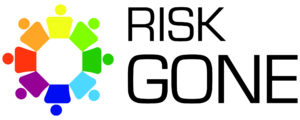Science-Based Risk Governance of Nanotechnology (RISKGONE)
Horizon 2020
Project participants:
Partners: 22 partners, 15 EU countries, USA and Iran
Web: https://riskgone.wp.nilu.no/
Duration: 2019-2023
Project coordinator: NILU, Norsk institutt for luftforskning, Kjeller, Norway
- Coordinator: Prof Maria Dusinska
- Deputy Coordinator: Dr. Tommaso Serchi
- Project manager: Dr. Eleonora Marta Longhin
The RiskGONE project aims to establish a pan-European nano-technology risk governance council equipped with a solid framework for risk assessment and risk management procedures for consistent governance of engineered nanomaterials.
WHY RiskGONE?
Engineered nanomaterials are used in a wide range of products providing novel or improved functions and a ground-braking innovation potential thanks to their unprecedented physico-chemical features. However, there is still limited knowledge about the risks connected to the widespread use of nanomaterials. Potential risks include human and environmental health. Their understanding by all stakeholders (including general public, academia, regulators, civil society and companies) is pivotal for the correct governance of this technology. This calls for a flexible and robust public policy framework that can balance between uncertainty, benefits, hazards and risks.
Such framework must be based on scientific evidence supporting a clear understanding of risks, their assessment and management within wider societal considerations.
OUR OBJECTIVES
- Establish a science-based nanomaterials safety governance body, in the form of a pan-European transparent, science- based and self-sustained Risk Governance Council, representing EU Member States and public authorities, scientific experts, civil society and industry.
- Provide transparent and understandable risk-assessment and decision-making tools based on a Cloud Platform.
- Develop a modular risk governance decision-making framework addressing different aspects of governance (such as social and economic impact, health risk, etc.).
- Produce nano-specific draft guidance documents to support risk governance of nanomaterials.
- Allow for smooth communication between stakeholders and civil society for what concerns governance of nanomaterials.
PROJECT STRUCTURE & PARTNERSHIPS
The project’s activities are balanced between experimental and theoretical work. RiskGONE will focus on:
- Risk governance framework and council
- Risk-benefit assessment
- Characterisation in vitro dosimetry and environmental fate
- Human hazard assessment
- Eco-toxicological hazard assessment
- Ethical issues
RiskGONE actively contributes to the activities of the Nano Safety Cluster.
RiskGONE is also part of a cluster of H2020 projects addressing specific support tools to better predict human health and environmental impacts of nanomaterials, as well as to guide the decision-making process, and the more holistic safety governance of nanomaterials.

